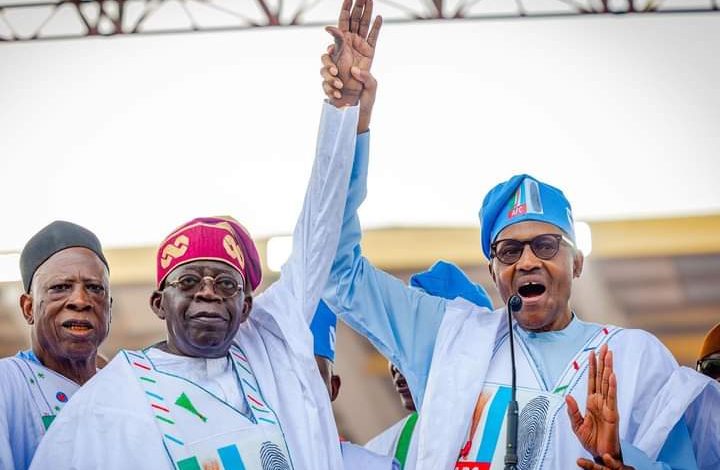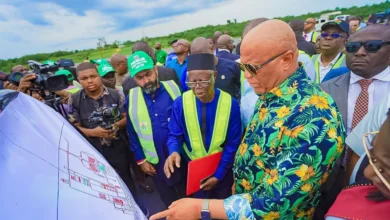
In a few days time, Asiwaju Bola Ahmed Tinubu will be inaugurated as the President of Nigeria, a country that has been plagued with numerous challenges for decades. Over the years, these challenges have worsened. The incoming Bola Ahmed Tinubu government will have to tackle these challenges head-on if they hope to make any significant progress in addressing them otherwise posterity will judge him, like others before him, harshly. In this short essay, I analyze, vide infra, some of the critical challenges Nigeria faces and humbly offer an agenda for the incoming administration.
Widespread Corruption
Corruption is one of the most significant challenges Nigeria faces. The country has consistently been ranked as one of the most corrupt nations in the world. In my scale, it is Nigeria’s number one challenge.
Corruption can have devastating effects on a country, both socially and economically. Here are a few examples:
a. Loss of public trust: When corruption is prevalent in a country, citizens lose trust in their government and institutions. They may feel that their needs and concerns are ignored, and that the government only looks out for the interests of the corrupt officials and their cronies. This breeds dissatisfaction amongst the citizenry
b. Economic impact: Corruption can have a negative impact on a country’s economy. It discourages foreign investment, reduces economic growth, and increases the cost of doing business. These lead to higher unemployment rates and lower overall standards of living.
c. Inequality: Corruption exacerbates existing social and economic inequalities, as those with connections and resources are better able to manipulate the system for their own benefit. This leads to a concentration of wealth and power in the hands of a few, while the majority of citizens are left behind leading to violent crimes and terrorism.
d. Undermining the rule of law: Corruption erodes the rule of law, as officials may be more likely to prioritize their own interests over enforcing the law. This can lead to a breakdown in the justice system, and a lack of accountability for those who engage in corrupt practices.
The incoming government must prioritize the fight against corruption by strengthening existing anti-corruption agencies, enforcing laws, and implementing policies that promote transparency and accountability in government. Understudying the leadership of Mikheil Saakashvili, who served as the President of Georgia from 2004 to 2013, and is credited with taming corruption in a country once infamous for corruption countries, is highly recommended.
Fuel Scarcity/Subsidy
Nigeria is a leading oil-producing country, yet the country experiences frequent fuel scarcity. This is due in part to the government’s inability to maintain existing refineries and build new ones. The incoming government must prioritize investment in the oil and gas sector by rehabilitating existing refineries and building new ones. Additionally, the government must remove fuel subsidies gradually, which will help to attract private investment into the sector. The burden of fuel subsidy which is weighing down the country has been the broth from which some fat cats have continued to enrich themselves.
Insecurity
Insecurity is another significant challenge that Nigeria faces. The country has been plagued with banditry, kidnapping, and terrorism for years. The incoming government must prioritize security by allowing community policing including State Police, recruiting more security personnel, training existing ones, and providing them with the necessary equipment to carry out their duties effectively. Additionally, the government must implement policies that address the root causes of insecurity, such as poverty and unemployment.
Unemployment
Unemployment is a significant challenge that Nigeria has been facing for years. The incoming government must prioritize job creation by implementing policies that promote investment in key sectors such as agriculture, manufacturing, and technology. Additionally, the government must prioritize skills development by investing in education and vocational training programs.
Education: The education system in Nigeria is in bad shape. More emphasis is placed on University education while neglecting technical skills that are needed to run and build a country. Consequently, the pyramid is inverted – more graduates are at the top. This is a major cause of unemployment – too many graduates chasing few available jobs. The incoming government should promote technical education and halt the establishment of new universities. The existing ones need to be expanded to take in more candidates. I am happy that the president-elect has promised to institute student loans. This would enable the universities to charge appropriate fees and improve the quality of education.
Poor Healthcare Services
Nigeria’s healthcare system is in dire need of reform. The country experiences brain drain in the health sector due to poor working conditions and low wages. The incoming government must prioritize healthcare reform by investing in infrastructure, equipment, and personnel. Additionally, the government must prioritize incentives for healthcare professionals to reduce brain drain.
Electricity Supply
Nigeria’s electricity supply is one of the worst in the world. The incoming government must prioritize investment in the power sector by implementing policies that promote private investment and prioritize the rehabilitation of existing infrastructure. Additionally, the government must prioritize alternative sources of energy such as solar and wind power to diversify the country’s energy mix.
Bad Roads
Nigeria’s road network is in a deplorable state. The incoming government must prioritize investment in road infrastructure by rehabilitating existing ones and building new ones where necessary. Additionally, the government must prioritize policies that promote private investment in the sector.
Religious & Ethnic Intolerance
Nigeria is a religiously and ethnically diverse country, and religious/ethnic intolerance is a significant challenge that the country faces. The incoming government must prioritize policies that promote religious and ethnic tolerance and harmony by implementing dialogue and conflict resolution initiatives.
Additionally, the entire country is the constituency of the President. Irrespective of the vociferous opposition from a section of the country to his emergence as the president , he must enact and implement policies that include all parts and religions and unite the country. No one should be left behind.
Read also: INTERVIEW: President-elect should fix power problem, cause impactful change – Joel-Onowakpo
True Federalism:
The Federal Govt of Nigeria is Federal in name but Unitary in practice. True federalism and fiscal decentralization speeds up growth since it reduces planning and administrative costs, engenders competition among States, etc. The President should set in motion the machinery to return Nigeria to a true federal state.
In addition to returning Nigeria to true Federalism, the incoming government should graciously consider and implement the Steve Oronsaye Committee Report that has been gathering dust since 2012 when it was submitted. This will drastically reduce the cost of governance and free up resources for development.
Conclusion
In conclusion, the incoming Bola Ahmed Tinubu government must tackle the significant challenges that Nigeria faces. These challenges include widespread corruption, fuel scarcity/subsidy, insecurity, unemployment, poor healthcare services, brain drain, poor electricity supply, bad roads, and religious intolerance.
The government must prioritize policies that promote transparency, accountability, and investment in key sectors such as healthcare, education, power, and infrastructure. Additionally, the government needs to prioritize policies that address the root causes of insecurity, poverty, and unemployment. Only then can Nigeria begin to make sustainable progress.
Dr Prosper Ahworegba, a medical consultant, writes from Igbide, Isoko South Local Government Area, Delta State.




